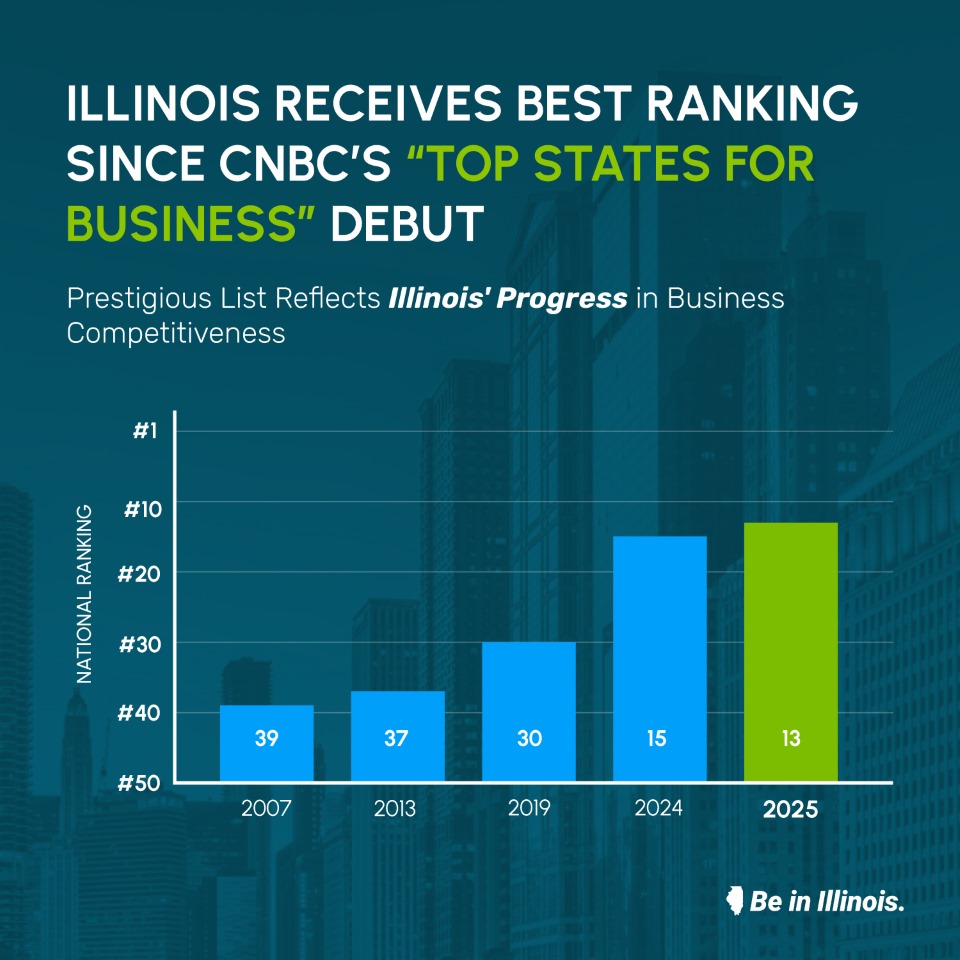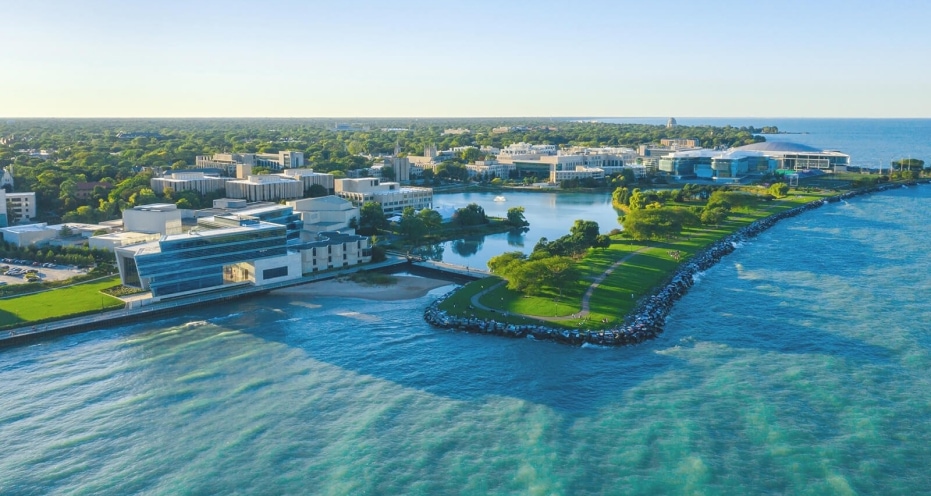Illinois Investment Spurred by Bonds and Big Data – U.S. News and World Report
October 22, 2018
Intersect Illinois President & CEO Mark Peterson talks about building relationships and data networks to attract business to the state in this U.S. News and World Reports story.
Mark Peterson, the man who heads economic development efforts for the state of Illinois, says the key to his job is building.
As president and CEO of Intersect Illinois, a privately funded development firm he took over in May 2017, he says it’s his mission to build both relationships and data networks to help attract business to the state.
“Data is king,” he says. “I think the point needs to be made that the world of economic development is very much about facts and data and then building relationships.”
And since he took over the state’s rebranded development arm more than a year ago, Peterson’s had plenty of work to do. He oversaw Intersect’s realignment from a public-private partnership to a privately funded outfit that he says has more flexibility to draw foreign investment and strike partnerships than an entity reliant on public funds.
He’s worked to make it easier for the nearly 2,000 foreign-owned companies currently operating in Illinois to set up shop – companies he says contribute more than $100 billion to the state’s gross domestic product each year. Most recently, the cosmetics branch of Germany-based Faber-Castell, a company also known for making pens, pencils and art supplies, announced plans to open its first North American manufacturing facility in Illinois – a $9 million project expected to create 50 full-time jobs.
“One of their decision points was they needed to be within seven time zones of Germany. So that left the West Coast out of the deal. We were competing with Wisconsin and New York and New Jersey, and we won the deal because we had the right ecosystem,” says Peterson, who in September was recognized as one of North America’s top 50 economic developers by Consultant Connect, a consulting agency that annually recognizes the region’s top development officials.
Tell us about Intersect Illinois.
So I came in 15 months ago. Intersect was originally designed to be a public-private partnership, meaning that it would be partly funded by public and private money. But I recommended to them when they were recruiting me for the job that that was not the right way to model the organization, because of the politics involved. I came from New York, where you have big politics in a big city, with the rest of the state feeling like they’re getting short-shrift. If you’re really going to unify an approach to economic development, particularly if you’re going to play on the world stage, you need to be apolitical. It shouldn’t matter who’s in the governor’s office or the mayor’s office. You need to work with everybody and bring a team approach.
So they bought into that idea, so I pivoted the organization, raised some more money. We are totally privately funded. I have a close relationship with the governor’s office and with the city of the Chicago in partnerships, but we are run by a private board.
Intersect is primarily focused on marketing the state of Illinois and its assets to companies around the world and attracting interest in bringing new investment and new jobs here. We do work with some existing companies doing major expansions, particularly those with footprints in many parts of the world and many parts of the United States.
We drive the foreign direct investment strategy for Illinois. There are good reasons to do that through a private organization. It’s really hard for governments to get approval quickly to fly to China and do those kinds of things. We can be responsive to companies and bring continuity to the process, which is critical in economic development. Some of the projects we’re working now will take three or four years to come to fruition. During that time, we may have all kinds of changes in administrations and people and players. Companies don’t like that. They want to know they have a consistent message and consistent people to go to.
You’ve spoken before about your efforts to enhance the state’s data resources. What have those efforts looked like?
Our world is really about data. You can look in the paper and find all kinds of good things and bad things about any place in the world. The reality is companies are making legacy decisions that sometimes have 30- or 40- or 50-year ramifications. They want to do their due diligence, and data is king. Just saying you have the labor pool isn’t good enough. You have to prove it. If they’re a manufacturing-intense entity, you’ve got to prove you have the power and the site and the permits. Even if they’re a financial tech organization where the site’s not that important and they’re going to take a downtown office, you need to prove you have partners for them and you can plug them into an ecosystem that’s rich and diverse.
We’re trying to give information to companies and to market ourselves. When I say: “We have 65 direct flights to anywhere in the world and you can get anywhere in the (continental) United States in under four hours from Chicago,” I have that. And other places don’t, so that gives me a strategic advantage for certain types of companies.



